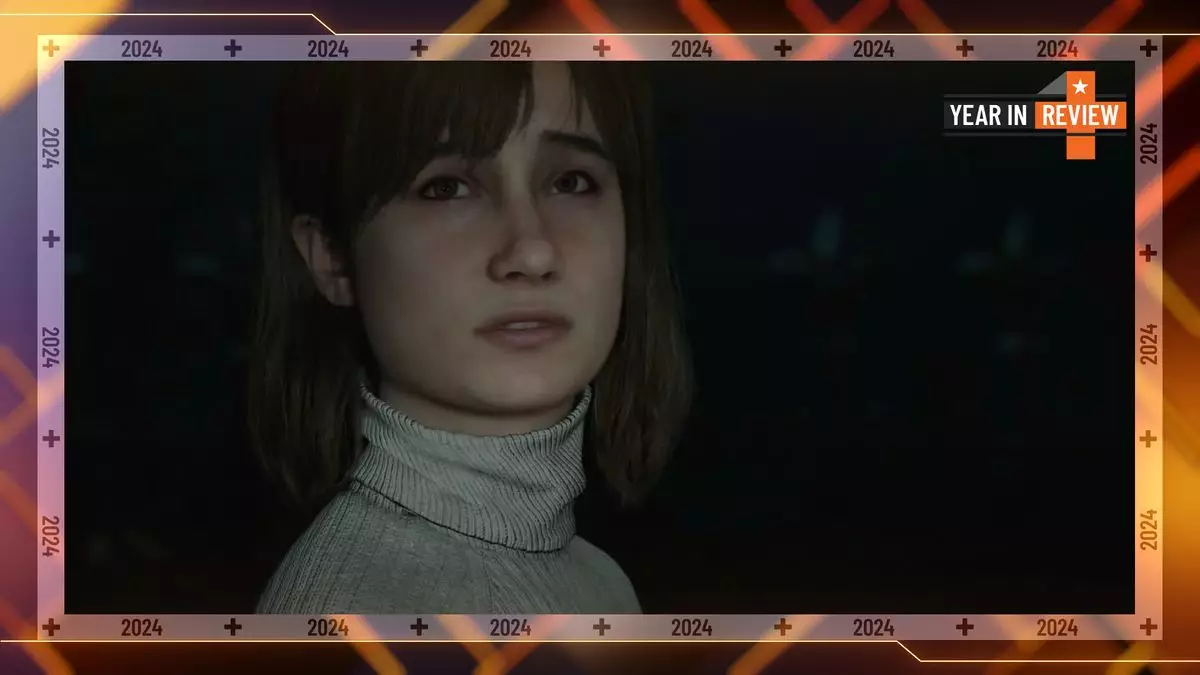In the realm of video games, few characters evoke as much empathy and complexity as Angela Orosco from Silent Hill 2. Introduced by Konami in its 2001 release, Angela is a character defined by her overwhelming sadness and inner turmoil. At just 19 years old, she’s portrayed as a victim, grappling with a painful past that manifests in profound despair. The recently released Bloober Team’s remake of Silent Hill 2 offers a refreshed portrayal of Angela, one that injects her character with a poignant dignity that was underappreciated and often misunderstood by some facets of the gaming community. As the discourse surrounding female representation in gaming gathers momentum, Angela’s journey through the fog of Silent Hill becomes a vital narrative that resonates deeply, not just with gamers but with broader societal discussions surrounding trauma and victimhood.
With the remake’s release, many fans of the original title expressed dissatisfaction with Angela’s updated appearance, opting instead for the haunting visage of her earlier self. Critics claimed that Bloober’s rendition of Angela, who appears more youthful and approachable, lacked the severity required to convey her suffering. While this view of Angela’s character might stem from a protective instinct over the narrative’s trauma representation, it also highlights a troubling dichotomy: the idea that a character’s worth is intertwined with aesthetic pain. That sentiment risks flattening Angela into a mere caricature of victimhood—one which doesn’t encapsulate the multifaceted experience of trauma.
In the original game, Angela’s severe features hinted at torment that had not only aged her prematurely but also rendered her a visceral embodiment of despair. When she appears in front of a mirror, wielding a knife and contemplating her existence, the moment serves as a harrowing reflection of struggle, a powerful moment highlighted in Bloober’s remake through Gianna Kiehl’s voice acting, which brings depth to Angela’s pain. Kiehl’s performance lends a sense of authenticity that elevates Angela from mere aesthetics into a deeply relatable figure whose traumas warrant understanding rather than judgment.
As Angela’s story unfolds, her interactions with James Sunderland reveal not just her suffering but the broader implications of her pain. The infamous boss battle with Abstract Daddy transforms from merely a grotesque representation of assault to a gut-wrenching confrontation with the reality of Angela’s lived experiences. In the remake, the moment becomes a visceral confrontation for the player—one that goes beyond horror to spotlight the grim realities of abuse and neglect, allowing players to grapple with the uncomfortable feelings that these stories evoke.
Angela’s statement, “Even mama said it… I deserved what happened,” encapsulates the internalized shame and anguish that victims often carry. It becomes painfully evident that the remade character is not only more relatable but also a reflection of a larger conversation surrounding the complexity of victimhood. Angela’s emotional struggle is tangible; she is not merely a victim but a survivor grappling with her perceived worth, thus shifting the focus from simplistic narratives of strength and weakness to a more nuanced understanding of human experience.
The Silent Hill 2 remake arrives at a time when societal conversations surrounding mental health and trauma are paramount. As players traverse Angela’s harrowing world, they may find reflections of their struggles amid the eerie landscapes. The remake creates a space for empathy that allows players to recognize part of themselves in Angela’s journey—her vulnerabilities and her dignity. This recognition fosters a powerful connection that can drive the conversation forward in gaming culture.
In an age where stories of women in gaming are often overshadowed by debates around their sexualization, Angela Orosco stands as a testament to complexity. Her character showcases the potential for video games to delve into emotional realism without relegating female narratives to tokenism or objectification. Angela does not need to adhere to stereotypes or be wrapped in a sexualized persona to claim her space in gaming; she simply needs to be a multi-dimensional individual facing her own demons.
The portrayal of Angela Orosco in Silent Hill 2, especially in Bloober’s remake, serves as a pivotal moment in video game storytelling. It challenges players to confront uncomfortable truths about trauma and the importance of empathy. While many may cling to nostalgic representations of pain, the evolution of Angela’s character emphasizes the necessity of understanding the emotional landscapes that define human experience. In delving into Angela’s complex existence, players are not just participants in a horror story; they engage in a transformative experience that reshapes the narrative around trauma, resilience, and, ultimately, healing in the gaming context.

